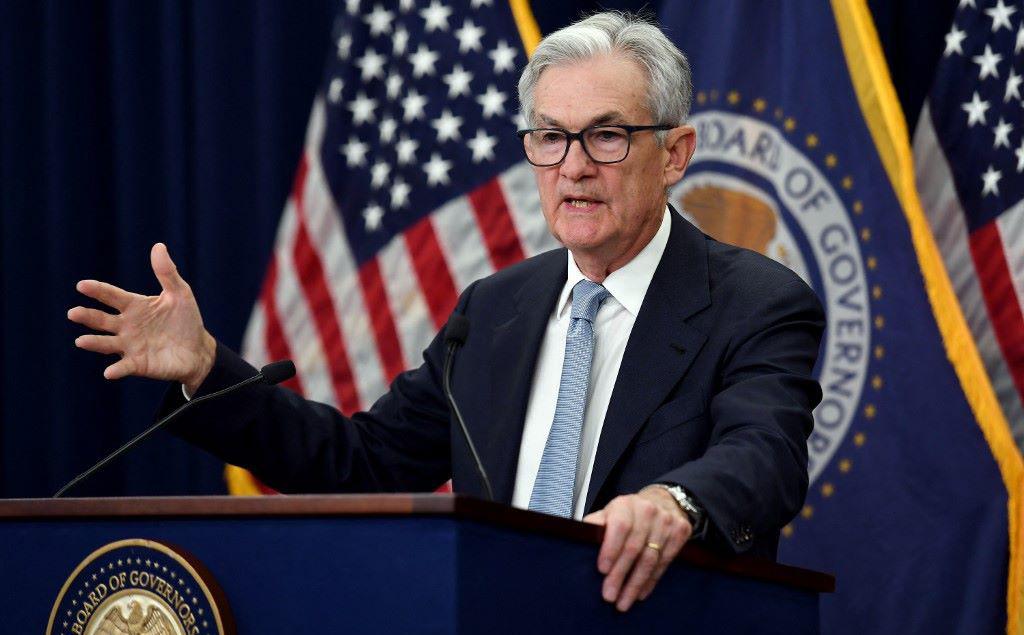
2 minute read
Stocks fall, peso hits 9-month high on BSP interest rate hike
By Julito G. Rada
STOCKS fell while the peso advanced to a nine-month high Thursday, ahead of the Bangko Sentral ng Pilipinas’ decision to raise the overnight borrowing rate by another 25 basis points.
Top Losers
Most Active
The PSE index, the 30-company benchmark of the Philippine Stock Exchange, shed 9 points, or 0.15 percent, to close at 6,536.36 as five of the six subsectors registered losses.
The broader all-share index also dropped 7 points, or 0.21 percent, to settle at 3,492.77 on a value turnover of P3.69 billion. Losers outnumbered gainersk 98 to 56, while 62 issues were unchanged.
Four of the 10 most active stocks ended in the green, led by Globe Telecom Inc. which rose 0.54 percent to P1,848.00 and Ayala Land Inc. which gained 0.53 percent to P28.35.
The peso appreciated to a nine-month high against the greenback following the expected 25-bps hike in policy rate to 6.25 percent and the reduced inflation forecast for 2023 and 2024.
The peso closed at 54.27 against the US dollar, stronger than 54.5 on Wednesday. It was its strongest finish since it settled at 54.265 on June 21, 2022. Rizal Commercial Banking Corp. chief economist Michael Ricafort said the latest move of the Monetary Board helped stabilize the peso. “The peso also became stronger after the latest reduction in the BSP inflation estimates to 6 percent for 2023 from the previous esti- mate of 6.1 percent, and 2.9 percent for 2024 from 3.1 percent,” he said.
Ricafort said the peso also appreciated after global crude oil prices declined to linger among 15-month lows since Dec. 21, 2021 that could further help ease inflationary pressures and narrow the country’s trade deficit.
Meanwhile, Asian markets mostly rose Thursday and the dollar retreated, brushing off a Wall Street fall on hopes the Federal Reserve’s latest interest rate hike would be one of its last.
The gains came even as the US central bank’s chief Jerome Powell dealt a blow to hopes it could cut borrowing costs later in the year to soothe banking sector fears.
Recent turmoil caused by the collapse of two US lenders and the takeover of Credit Suisse had fanned speculation central banks would pause their inflation-fighting monetary tightening campaign. With AFP
China holds ‘upper hand’ in Russian gas exports
BEIJING—A massive new gas pipeline to China could help reduce Russia’s reliance on European buyers, but analysts say the project reveals a growing imbalance between the longtime strategic allies.
Beijing emerged as an economic lifeline for Moscow last year, especially through energy purchases, after Western sanctions over Russia’s invasion of Ukraine cut off crucial trade links.
Moscow is confident that the new pipeline—Power of Siberia 2—is going ahead, but Beijing has so far avoided an explicit commitment.
Analysts say the lagging response shows an imbalance favoring Beijing in energy deals between the two countries—as well as China’s wariness of over-reliance on Russia for fuel.
China is “in no rush to sign anything unless the proposal is favorable and is shaped on China’s terms,” researcher Marina Shagina at the International Institute for Strategic Studies in Berlin told AFP.
The project was discussed during Chinese President Xi Jinping’s summit with Russian leader Vladimir Putin in Moscow this week.
Putin said after talks with Xi that “all agreements have been reached” on the Power of Siberia 2 project.
But their joint statement only said the two sides will work on pushing forward “research and consultation” on the pipeline.
The Chinese foreign ministry did not respond to a request for more details.
Power of Siberia 2 could facilitate the transport of 50 billion cubic meters of gas to China annually, roughly on par with the total capacity of the controversial Nord Stream 2 pipeline from Russia to Germany.
A senior Russian official suggested last year that it could strategically replace Nord Stream 2. AFP






